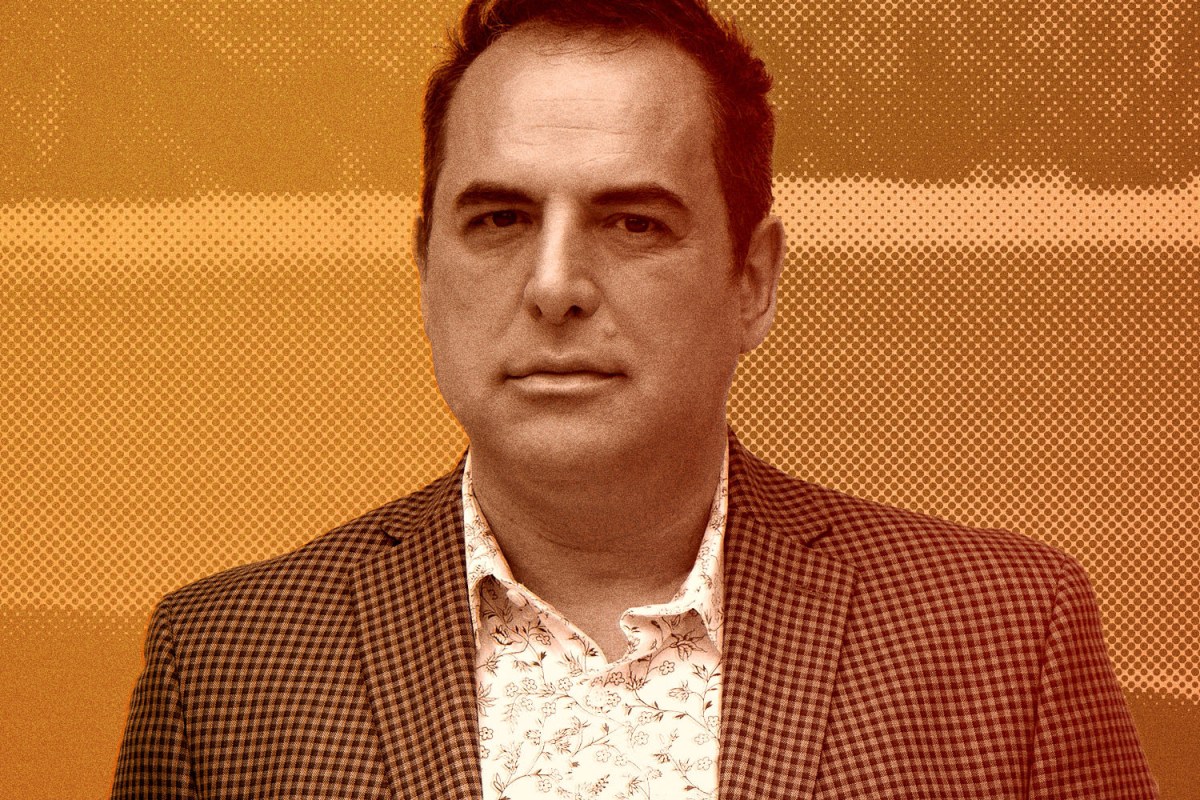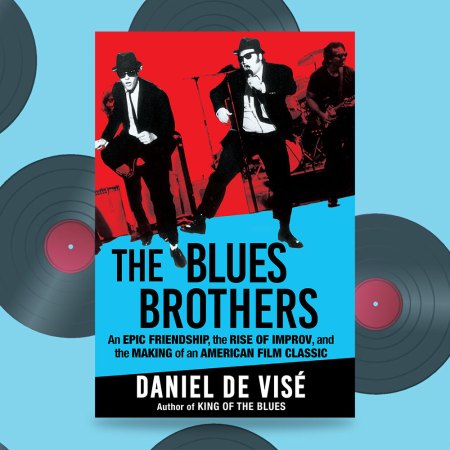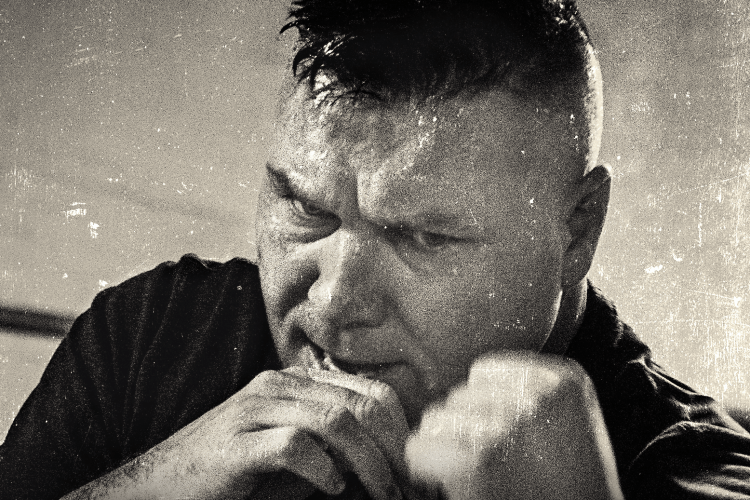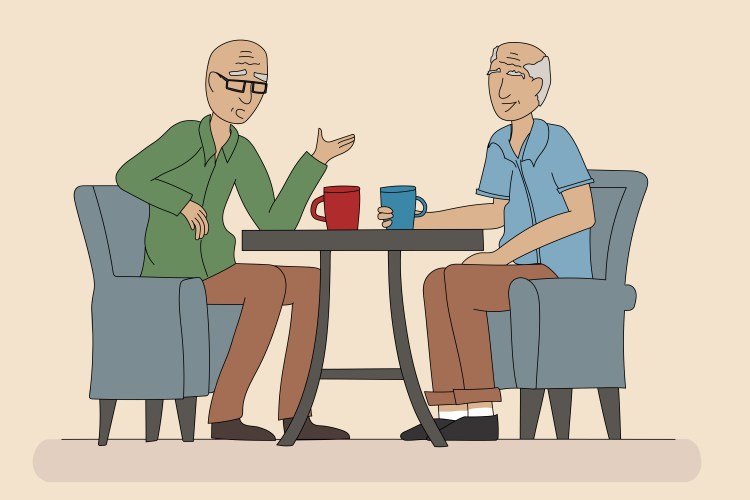As I talk with Tom Scharpling, there’s a little voice in my head telling me that I should apologize. But this isn’t about me; it’s about him and his new memoir, It Never Ends.
For the unfamiliar, Scharpling is one of the comedy world’s most beloved cult figures. I feel bad using that term — “cult,” like he has a handful of die-hards who are obsessed with him and his work — because his following goes beyond the people that have been tuning into his radio show, The Best Show With Tom Scharpling, over the past two decades. It stretches deep into the world of people who appreciate humor, not just people who are looking to laugh. And there is a difference. Scharpling — along with his partner in crime, Superchunk and Mountain Goats drummer Jon Wurster — basically took a format that had long been dominated by blowhards (albeit funny blowhards) and made it feel fresh again. The Best Show is a radio show for weirdos who get it, sitting somewhere uncomfortably between take jockeys like Howard Stern and Mike Francesa and the controlled anarchy of a cable-access show like Glenn O’Brien’s TV Party.
Basically, it’s hard to explain Scharpling and his universe unless you listen to him. And while there’s a chance that you, the reader, aren’t familiar with him, he’s done everything from write on hit television shows like Monk to making an appearance as a yellow-fied version of himself onThe Simpsons. He’s the sort of person that makes other funny people laugh. You either get it or, sadly, you don’t. And I sometimes wonder if that sort of comedy will always have a place in a world that is increasingly dependent upon “likes” and algorithms feeding us what to watch or listen to next.
“That’s a personality trait more than anything,” Scharpling says. “If somebody’s making something for the glory of making a thing and nothing more than that, they’re going to do what they want and they’re not going to be concerned with whether people get it or not.” Scharpling mentions TikTok as a perfect example of this: Gen-Zers just messing around with their iPhones, making offbeat, highly personal videos for fun that end up connecting with a small or sometimes large group of people. “They do it because it’s funny to them. And then other people get ahold of it, and then you understand the language of it, and then it gets run into the ground.”
The Scharpling story that people might be familiar with is already interesting in the grand scheme of 21st century media. Guy gets a show on the independent radio station WFMU and grows an obsessive audience, but he’s also doing it … for free. It’s a labor of love. A labor that you or I might not have understood until picking up his new memoir, It Never Ends. It isn’t just him rolling up to a studio, putting on the cans and going to work. It’s a process that takes a few days to prepare and usually a day or so to recover from. And for years, Scharpling was doing it for free — he was making zero dollars until he decided to strike out on his own. Now he hosts the show free of a provider and has a Patreon that keeps the whole thing going.
In a way, he’s the proto-podcaster. Since not everybody could squeeze out a few hours once a week to listen to him, many of us listened to the show after it went live. By the time he struck out on his own in late 2016, there were already lots of people making money off recording their voices and blasting it out over whatever platform listeners consumed podcasts on. The Marons and Chapos of the world were raking in as much as six figures a month hawking online mattress companies or getting people to subscribe to a membership platform. Scharpling had to build the whole thing from scratch to catch up to them.
Of course, the fans came along. The Best Show is still very much a cult comedy thing, but Scharpling’s reputation has only grown in the 20+ years he’s been making his show. When you do something for that long, you get to see the people that grew listening to you come of age. Your influence begins to reveal itself. Whenever I talk to somebody in comedy about their peers, there will sometimes be the “Yeah, yeah, they’re fine” with an eyeroll sort of talk. But when you bring up Scharpling, it feels like you’re mentioning Mad magazine, Monty Python or Letterman in the 1980s — something big. And the latter is a noticeable influence on his work. Letterman comes up in his new book, along with SCTV, as early influences. Late Night With David Letterman, he says, “wasn’t a particularly well laid-out studio in terms of extravagance or making things in, like, big showbiz. It felt real.”
That’s how I feel about Scharpling’s shows. They feel real. Scharpling — who admits that he plays something of an amplified version of himself on the radio — seems like a guy I know because I’ve been listening to him for so long. Yet I keep coming back to The Best Show, as well as his other podcast, Double Threat With Julie Klausner and Tom Scharpling, because I never know what I’m going to get. When I read It Never Ends, this impression only intensified: halfway through the book, I realized I actually knew nothing about Scharpling.
The problem with writing about any memoir is you want the memoir to do the talking. If I spoil things for you, maybe you will read this and think you won’t need to go buy the book. The writer loses out. So I need to tread a very fine line as I talk about It Never Ends.
What I will say as somebody who has read a lot of memoirs and essay collections by funny people is that Scharpling’s is top-tier. There is a lot of humor in there, but there’s so much naked honesty that I felt overwhelmed at points. Scharpling, who has been this mostly disembodied voice on the other end of my computer speaker or radio for years, this famously grumpy host who will give callers the “heave ho” once they start annoying him, gives all of himself. There’s a lot, but what stuck out to me was how honest he was about his mental health. He writes, “I always had a passing relationship with sadness my entire life,” and goes on to write about his experiences with ECT as a child, and how that passing relationship with sadness has never really gone away.
Nonetheless, you’ll put down the book happy that Scharpling could be so honest about it, especially because we often overlook the mental health of people in comedy, reducing it to this idea that one “has to be messed up” to want a job making other people laugh. Scharpling just sees it as part of his tale. It would have been dishonest not to include it. “If I tried to tell some of these stories, but didn’t give context for big stuff, I wouldn’t not have been as happy with it, because it really would have been just like telling half the story.”
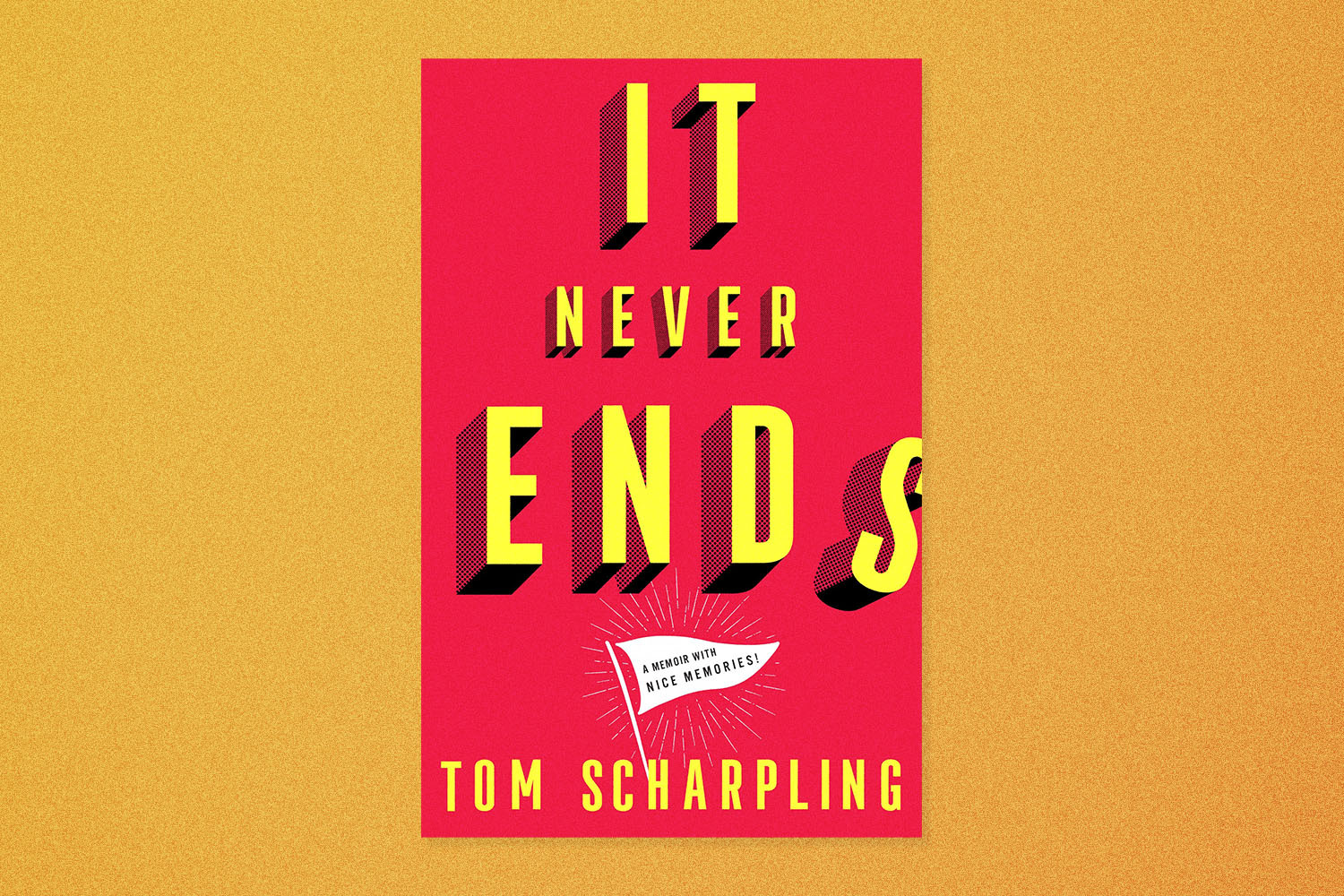
Scharpling and I don’t talk for that long. He’s far from his homeland of New Jersey, living on the West Coast these days. “It’s kind of where I should be,” he says. It sounds like he just woke up. Judging by the time difference, I can tell the sun is probably just peeking out where he’s at. We have a good conversation, but there’s something that’s bugging me. Not about Scharpling, but about something I did a few years ago.
I used to sometimes “review” The Best Show for a publication. I think I got paid 15 bucks a pop to sit and listen to three hours of the show and then write 50 words. I took the job too seriously. I was being tasked with being a critic. I thought I was being Pauline Kael, but I was more Jay Sherman, the animated protagonist voiced by Jon Lovitz on the mid-1990s cartoon The Critic. I took my opportunities to nitpick the stupidest little things I could find. It was stupid, I realize that now. Scharpling even discussed one of my reviews on The Best Show.
That’s what I felt like apologizing for. That’s what reading the book did to me. I realized what a jerk I’d been, hiding behind a veil of self-importance to take down an independent comedy show that a couple thousand people cared very deeply about.
But as I keep talking to this guy whose voice is so familiar to me, I find myself going from feeling like one of his callers to somebody who can be honest with him. I think about saying, “Hey, sorry I wrote a dumb review of your show. I was young and trying to make a name and I could have done that way better.”
Instead, I choke. I don’t apologize and use my last question to mention a little bit I liked in his book, where he’s talking about his respect for Jewish comedians, and he lists a bunch of Jewish people he likes as well as a bunch of Italian people he likes, and slips Bugs Bunny’s name into both (like his show, you have to read the book to understand the joke). That’s where, instead of apologizing, I end up committing the cardinal sin of an interviewer and I tell Scharpling how the last year has obviously been tough for me like everybody else, but hearing his voice, especially when it’s him kibitzing with Klausner on their podcast, just two friends being hilarious, made me feel less lonely during the pandemic. I’m feeling open, and I’m about to say sorry for the dumb review, something I feel like he might remember since, as you learn from It Never Ends, Scharpling has a super long memory. But then Scharpling says something nice. He thanks me for being a close reader. “You picked up my little Bugs Bunny puzzle I dropped in the middle seeing if anyone would take the bait.”
I felt like that was good enough. I got to thank the guy for giving me something. In the moment, that felt better than an apology for a stupid little 50-word review that bought me a few slices of pizza. But then after we hung up, I realized I’d made it worse. I made it about me. I should have just said the apology to this guy who I know a little better because I’d read his memoir and understood just how serious he takes this stuff. I screwed it up again.
It never ends. Truly.
This article was featured in the InsideHook newsletter. Sign up now.
